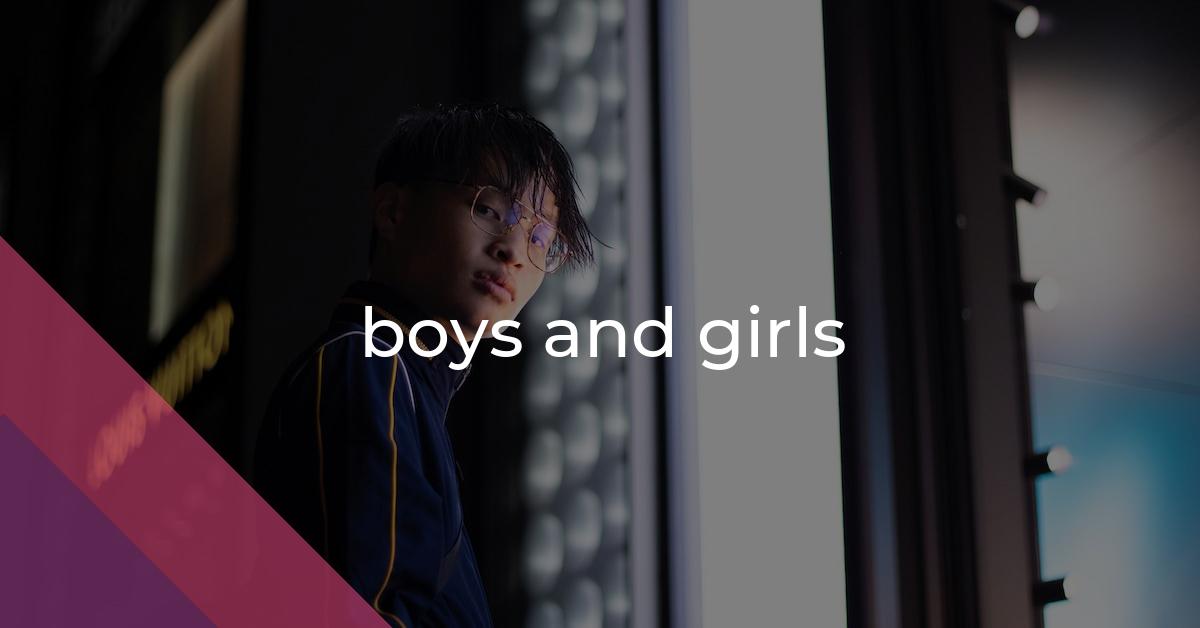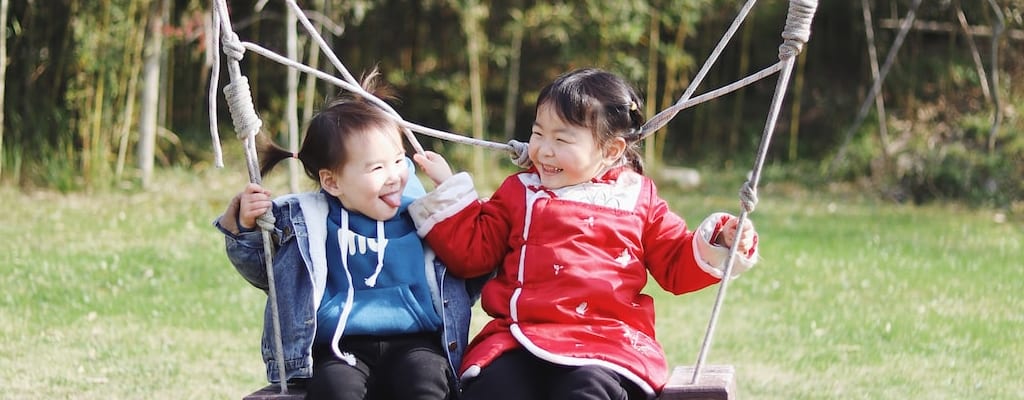boys and girls: Idiom Meaning and Origin
What does ‘boys and girls’ mean?
The idiom "boys and girls" is a colloquial expression referring to children of both genders. It is often used to address a mixed group of young people or to discuss topics related to childhood or education.

Idiom Explorer
The idiom "kiddie table" refers to a separate, usually less prestigious, area or group designated for children, typically during a formal meal or event. It signifies a lower level of importance or inclusion, implying that the individuals in this group are not considered to be on the same level as the adults or main group.
The idiom "just folks" means being ordinary, down-to-earth, and unpretentious, with a simple and relatable demeanor.
The idiom "good and" is used as an intensifier to indicate something is very much or completely in a certain state or condition.
The idiom "fair sex" refers to women or the female gender. It suggests an admiration for women or the perception that they are delicate and charming.
The idiom "everyone and their mother" is used to emphasize that a large number of people or things are involved in a situation. It often implies that the situation is crowded, overwhelming, or exaggerated.
The idiom "everyone and their brother" is used to emphasize that a large number of people are involved in or have knowledge of a particular situation or event.
The idiom "everyone and his mother" is used to emphasize the widespread or excessive presence of people. It implies that a large number of individuals, including those who may not be directly involved or relevant to a situation, are present or involved.
The idiom "every man Jack" means every single person, without exception. It emphasizes the inclusiveness and universality of a group or situation.
A Gendered Linguistic Journey
Boys and girls is an idiom that is commonly used in the English language. It is used to refer to both male and female individuals, usually children or young people. The idiom is often used to address a group of people or to collectively refer to both genders. It is believed to have originated from the early 17th century and has been in use ever since.
The idiom *boys and girls* is a frequently used phrase that is often heard in various contexts. It can be used in a casual or informal setting, as well as in more formal situations. The idiom is versatile and can be used in a variety of ways to refer to individuals of both genders.
One possible explanation for the origin of the idiom is the traditional division of labor and activities based on gender roles. Historically, boys and girls were often brought up differently and had different expectations and responsibilities. The idiom may have originated from the common practice of referring to children and young people based on their gender, emphasizing the differences between boys and girls.
Another possible explanation for the origin of the idiom is the use of gendered language in societies. English, like many other languages, has traditionally used gendered pronouns and nouns to differentiate between males and females. The idiom *boys and girls* may have developed as a way to address and include individuals of both genders using a single phrase.
The idiom *boys and girls* is commonly used in various contexts. It is often used in educational settings, such as classrooms, where teachers may address their students as *boys and girls*. It is also used in children's literature, where authors often refer to their young readers using the idiom. Additionally, the idiom can be used in social gatherings, where hosts may address their guests as *boys and girls*.
The idiom *boys and their toys* is related to the idiom *boys and girls*. It refers to the idea that boys, regardless of their age, have a fascination with and often collect toys. This idiom highlights the stereotype that boys have a preference for certain types of toys, such as cars, action figures, or sports equipment. The use of the word "toys" in this idiom is metaphorical and can extend beyond literal toys to include hobbies, interests, or possessions that boys enjoy.
The idiom *girly* is also related to the idiom *boys and girls*. It is often used to describe something that is typically associated with or considered suitable for girls. This can refer to anything from fashion and hairstyles to activities and interests. The use of the word "girly" in this idiom can have both positive and negative connotations, depending on the context. It can be used to celebrate or embrace femininity or to dismiss or belittle things that are perceived as feminine.
The idiom *boys and their toys* is a playful expression that reflects the common observation that boys, regardless of their age, often have a strong attachment to their possessions, particularly their toys. This idiom suggests that boys tend to have a special affinity for certain types of toys or activities that are traditionally associated with males. It can be used in a lighthearted manner to emphasize the idea that boys have distinct preferences and interests that may differ from those of girls.
The idiom *girly* is a colloquial term used to describe something that is perceived as being feminine or associated with girls. This can include a range of characteristics, such as clothing, accessories, behavior, or interests. The use of the word "girly" in this context can have different implications depending on the speaker's tone and intention. It can be used affectionately to embrace and celebrate femininity or derogatorily to dismiss or belittle things that are considered feminine. Regardless of the connotation, the idiom *girly* serves as a shorthand way to describe something that is commonly associated with girls or femininity.
The idiom *boys and girls* is a commonly used expression that refers to both male and female individuals, typically children or young people. Its origin can be traced back to the traditional division of labor and language based on gender roles. The idiom is versatile and can be used in various contexts, such as classrooms or social gatherings, to address or refer to a group of people. Additionally, the related idioms *boys and their toys* and *girly* highlight specific aspects of gender stereotypes and preferences, emphasizing the attachment that boys have to their possessions and the association of certain characteristics or interests with girls.
Example usage
Examples of how the idiom "boys and girls" can be used in a sentence:
- During recess, the boys and girls played together on the playground.
- The teacher asked all the boys and girls to line up in alphabetical order.
- At the sleepover, the boys and girls stayed up late telling scary stories.
More "Gender" idioms



